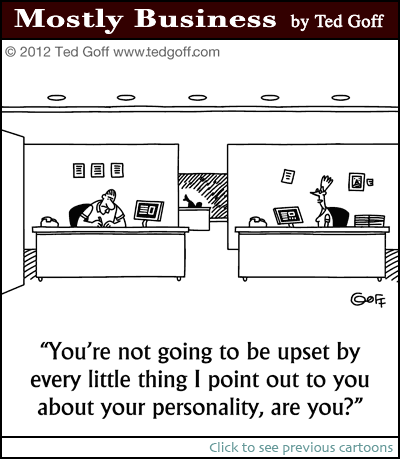 "There is a Chinese Wall between 'News' and 'Business'", I was told when I started to work for The Wall Street Journal Europe. As a mantra I repeated the phrase to other people the past couple of years. Sometimes people with a certain interest asked me if I could help them get an article in the newspaper. It had always been very easy to answer this question, it was sufficient to talk about the 'Chinese Wall' and people understood I -or anybody else from the 'business' side- was not the right person to talk to.
"There is a Chinese Wall between 'News' and 'Business'", I was told when I started to work for The Wall Street Journal Europe. As a mantra I repeated the phrase to other people the past couple of years. Sometimes people with a certain interest asked me if I could help them get an article in the newspaper. It had always been very easy to answer this question, it was sufficient to talk about the 'Chinese Wall' and people understood I -or anybody else from the 'business' side- was not the right person to talk to.News is also physically separated from 'the rest'. They occupy the second floor. 'The rest' occupies floor 1 and 3. The only reason we had to go to the second floor in the past was the 'big' meeting room situated on the second floor. But this meeting room has been remodeled. The biggest meeting room is now at the third floor, which will lead to even less visits to the island of news. (There is one exception, there is 1 guy from the opinion pages who has an office at the first floor, but that is being done deliberately as the op-ed people are not considered journalists, they are considered the 'soul' of the newspaper, they have nothing to do with the 'objective' side of the news, they won't even sign their articles with their names most of the time. Usually they occupy page 11 to 13 in the newspaper).
Anyway, today I was asked to host a group of students from The Missouri school of Journalism. I was suggested to ask 3 people from the news side to come up and talk to the students. I didn't know any of the journalists/reporters, although we probably work already for years in the same building for the same company. I introduced all 3 journalists clumsily because of my lack of knowledge about them. One of the reporters was Charles Forelle.
It was only after he spoke to the students that I understood from my boss that Forelle was actually a Pulitzer Price winner. How stupid can one be ? Forelle had been too modest to bring it up himself. And I was the badly prepared organizer who didn't know. To conclude, we failed to tell a class of journalism students they were interacting with a Pulitzer Price winner. I blame myself for my ignorance, I blame the Chinese Wall that prevent us from interacting with each other in a normal way.
Charles Forelle won the Pulitzer Prize for Public Service in journalism in 2007 for a piece which uncovered stock option scandals at some US corporations. It seemed that several business executives had rewarded themselves millions of dollars by backdating stock options. Forelle's articles for The Wall Street Journal, written and edited with James Bandler, Mark Maremont and Steve Stecklow, prompted the Securities and Exchange Commission (SEC) to investigate more than 140 companies, and at least 70 top executives have lost their jobs since then.
(Picture: Charles Forelle, right, seated, speaks to students of The Missouri School of Journalism at The Wall Street Journal Europe)





















